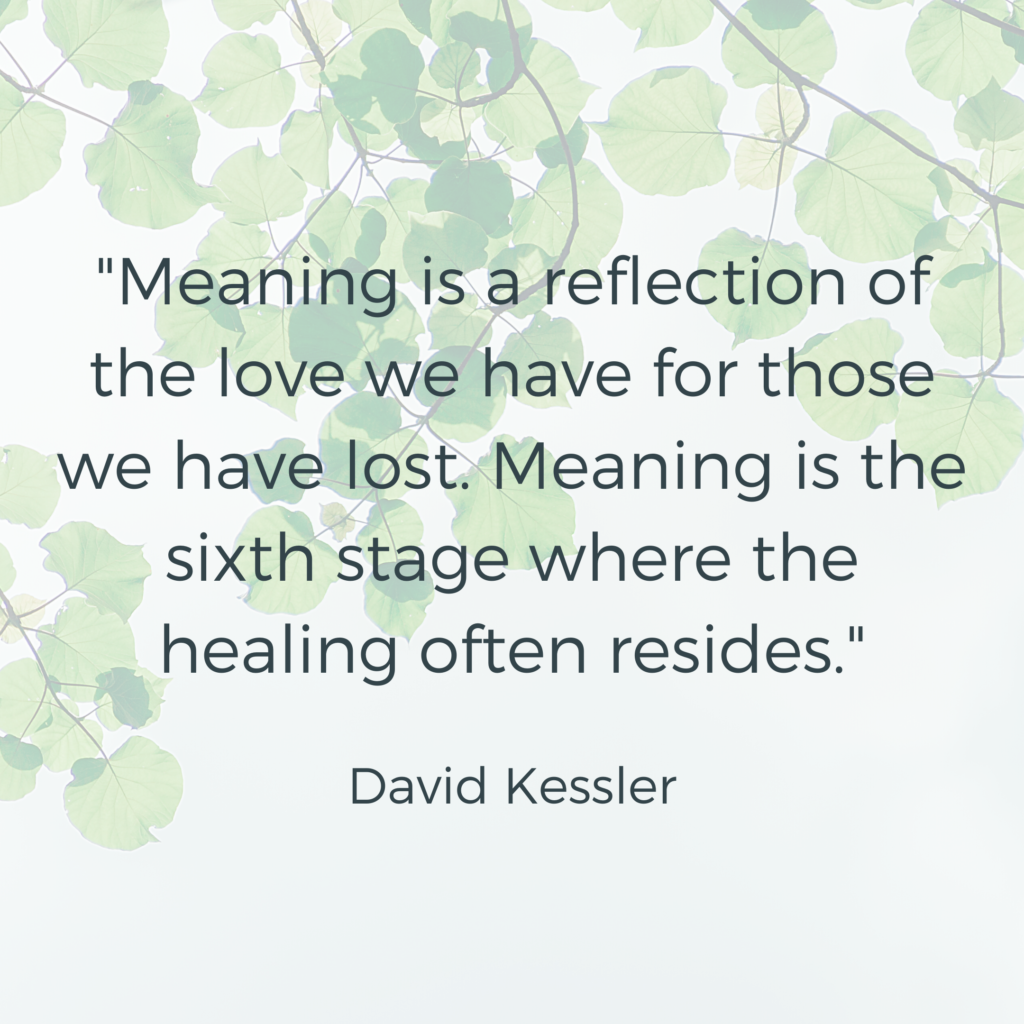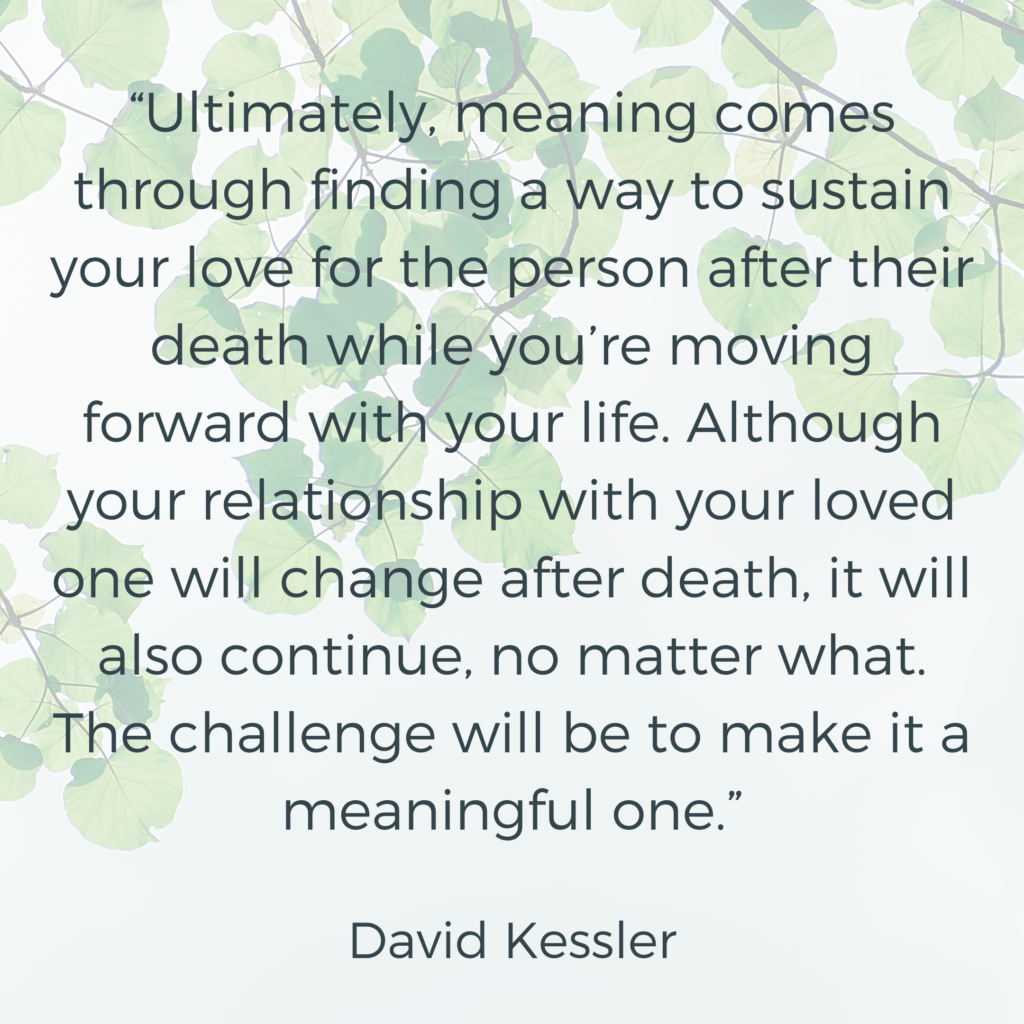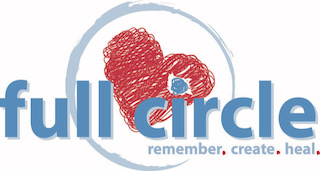By Allyson England Drake, M.Ed, CT

David Kessler is a bereavement expert who discusses finding meaning after the death of a loved one. I want to share some of his thoughts around the definition of meaning.
- Meaning is relative and personal, only you can find your own meaning.
- Meaning takes time. You may not find it until months or even years after a loss.
- Meaning doesn’t require understanding. It’s not necessary to understand why someone died in order to find meaning.
- The “why” you must answer is not why your loved one died, but why you lived.
- Why are you here? What meaning can you bring to the rest of your life? What meaning can you find in those who are living?
- Even when you do find meaning, you will not feel it was worth the cost of losing your loved one.
- When we can find meaning, we are able to move forward in our grief and not become stuck.
In his book, Kessler also gives examples of what meaning can look like after the death of a loved one. It may be helpful to review these examples as you think of what meaning may look like for you after your loss. Meaning is very personal, so you may think of other ideas that will be meaningful for you.
- Find gratitude for the time we had with loved ones
- Find gratitude for the support others are giving you
- Realize the shortness of life, the value of our life – life doesn’t always last as long as we want
- Create a change in your life to honor loved one, transformation of your life can bring meaning to theirs
- Honor and show love for those still in your life, making the most of relationships still in your life
- Do something that honors them, such as the way you live your life, treating others as they did, or being more present for others who are grieving
- Find ways to commemorate their life (small or big)
- Create a foundation, movement, or project in their honor
Kessler suggests using these questions as a reference to help you consider meaning after your loss. I recommend you taking the time you need to consider each of these questions. You may find writing answers in a journal helpful, so you can review your thoughts as you explore the concept of meaning in your loved one’s life and loss.
- What have you learned from loss?
- What have you learned to value? What did you value before their death?
- What did they value?
- What was important to you when they lived?-
- What is important to you now?
- What was important to them when they lived?
- What do I feel like I need more of?
- What if our loved ones see through our eyes? What do you want to show them?
- What can you do to keep this from happening to others?
- How have you changed?
- How has their life changed you?
- How did their love change you?
- What do you wish you knew before?
- How can knowing it now bring meaning to you or to others?
- What could you do with the information that was left behind in this loss to help other people?
- How could what I’ve learned help others?
- What would you like to tell others?
- What would you like to tell others before the tragedy happens?
- What do you know about life that you didn’t know before?
- How can we be inspired by their life?
- How can you help people in the same situation?
- What could you do to bring joy to other people’s lives?
- How can you bring joy to your own life?

Citation: Finding Meaning: The Sixth Stage of Grief by David Kessler (2019)



